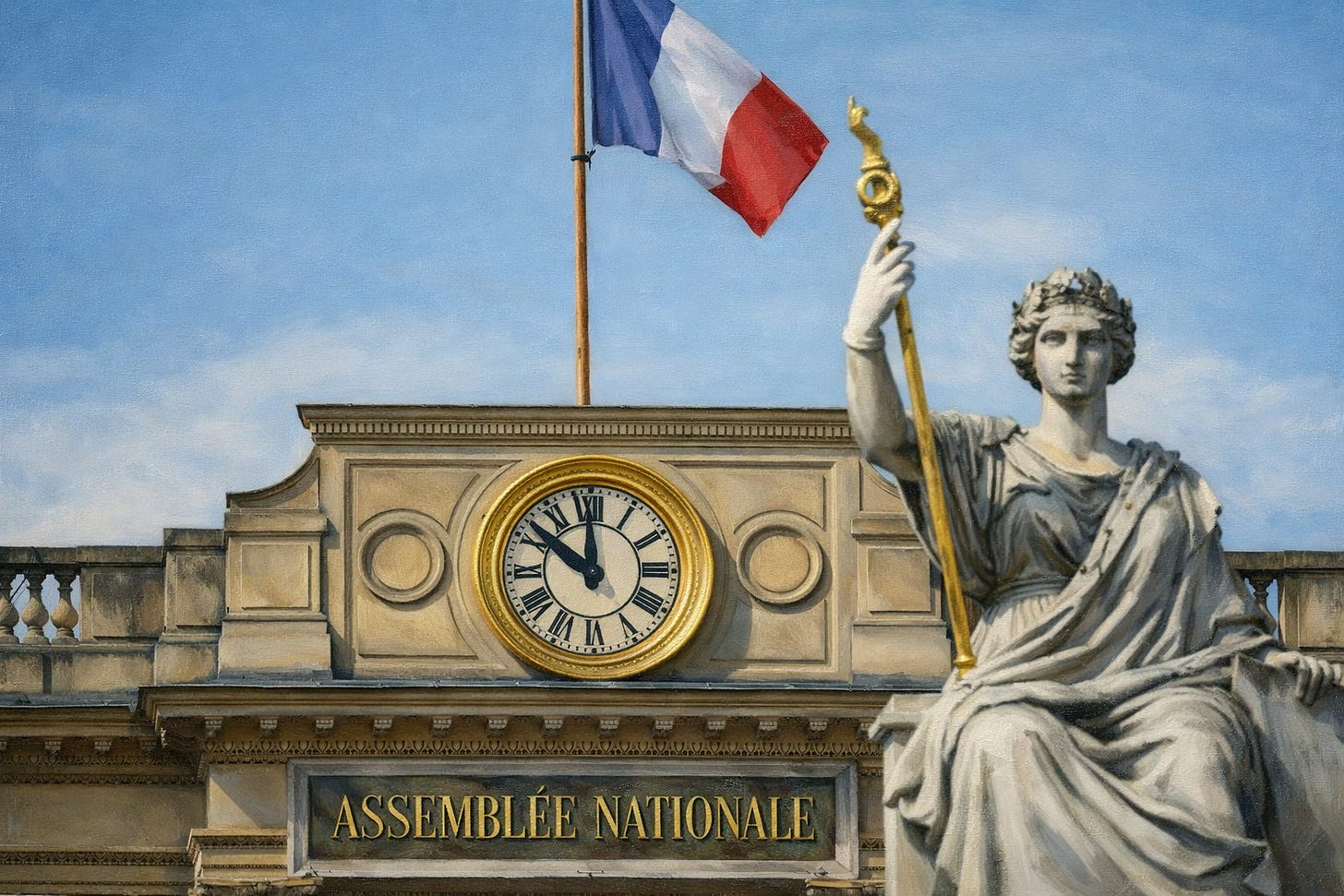France’s Crisis: Governments Fall, Debt Remains
Parliament in pieces, debt keeps climbing, extremes take ground.
Bayrou lasted 9 months. Three quarters of a pregnancy, and the government never made it to term.
Macron moved fast. Within 24 hours, he lifted Sébastien Lecornu from Defense to Prime Minister. In most countries, that would be a lateral move. In France, since June 2024, nothing is normal.
Macron's dissolution of parliament created a machine that eats prime ministers.
Lecornu is 39. Conservative roots, shifted into Macron's camp in 2017. Known as a crisis manager—he handled the Yellow Vest fallout, pushed defense spending after Ukraine. Loyal, pragmatic, not charismatic. His task is less about governing than surviving.
The mandate is unusual: negotiate the 2026 budget first, build a cabinet later. Cart before horse, but when you hold 150 seats out of 577, procedure is a luxury you can't afford.
New Popular Front: 178 seats. National Rally: 125. Together they hold 303—enough to bring down any prime minister at will. That's how Attal fell. That's how Barnier fell. That's why Bayrou fell.
And unless something shifts, that's Lecornu's future.
The National Rally plays a double game. Bardella signals he might talk budget, while Le Pen demands dissolution. It's tactical flexibility wrapped in strategic certainty. Polls show RN at 29–34%, NFP at 23–26%, Macron's bloc at 14–16%.
Each collapse adds weight to their argument: only we can impose stability.
France's debt is the shadow hanging over all of this.
€3.3 trillion. 114% of GDP. And climbing.
Servicing the debt already eats 7% of the budget and could hit €100 billion before the decade is out—more than the state spends on education or defense. Italy carries more on paper, yet its curve bends down. France’s keeps climbing.
The cheap-money era bought Paris time. Low rates and ECB support made it easy to roll over debt, to delay the hard choices. That window is gone. Now interest costs bite harder each quarter, and the fractured parliament makes any real fix nearly impossible.
Bayrou called it a silent hemorrhage. He wasn't wrong.
The streets feel it too.
Bloquons Tout—Block Everything—has spread from depots to schools to highways. Younger, angrier, and more digital than the Yellow Vests, they share the same distrust of institutions, the same conviction that elections solve nothing. The system is broken, they say, so break the system back.
Macron's approval scrapes along at 15%. Between 56% and 69% of voters want new elections. But new elections would likely hand more power to the extremes, not less.
This is France's trap: The economy demands austerity. The parliament makes austerity impossible. The streets reject both. And Brussels watches, waiting.



